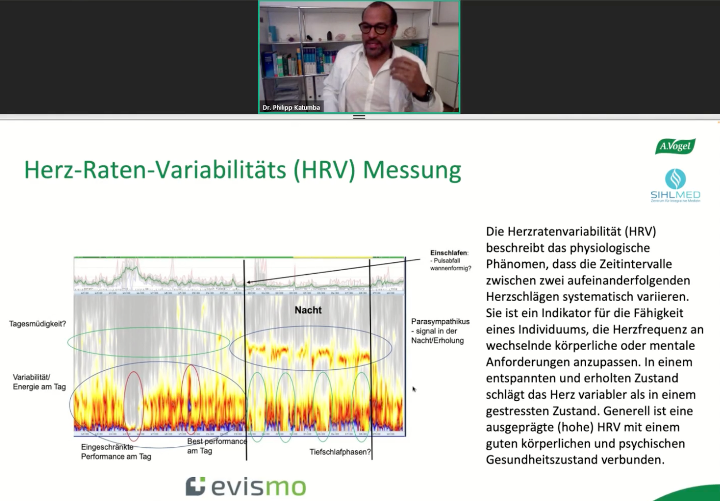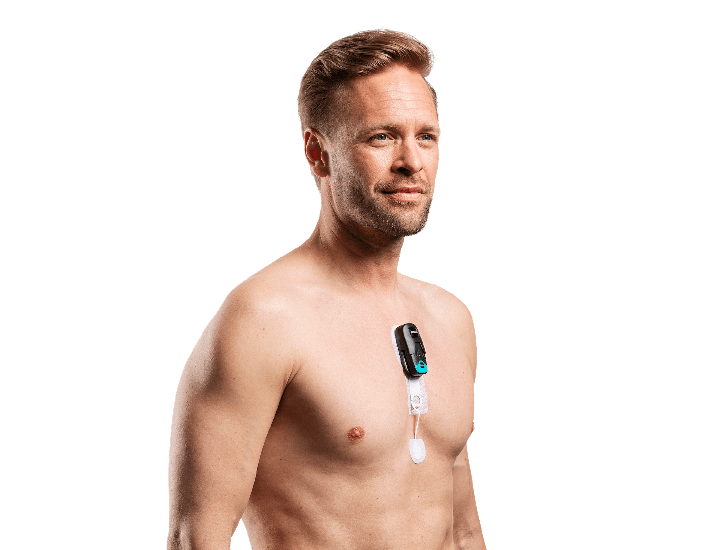The heart rate variability (HRV) is a central indicator for the heart's health and the autonomous nervous system. It allows far-reaching insights: a higher variability suggests a better recovery and adaptability of the body. These findings are used to not only identify stress, burnout, sleep disorders, but also to quantify and visualise them.
The evismo StressCheck finds increased usage in medical practices that have specialised themselves in integrative medicine. With an ECG sensor the HRV is recorded over 24 hours to make stress and recovery phases visible.
Detecting 'Burnout and Exhaustion Depression' Thanks to the Heart Rate Variability
Since March 2024 SIHLMED, the center for integrative medicine in Zurich, uses evismo's StressCheck with their patients. According to Dr. Philipp Katumba, chief physician at SIHLMED, the StressCheck offers the possibility to recognise burnout and exhaustion depression in sleep and waking phases by measuring the time intervals between heart beats. A steady heart beat can indicate tension and a disrupted internal clock.
This innovative HRV analysis helps us at SIHLMED to effectively identify stress, sleep disorders and burnout and to use it as a progression parameter.
Dr. Katumba explains the measurement of the heart rate variability in a webinar in front of 400 specialists and also referred to the evismo StressCheck.

He continued to say about the evismo StressCheck:
«As we started using HRV analysis at SIHLMED we have the possibility to precisely monitor out patients stress level and act in good time. The analysis offers us valuable insights that help us to recognise burnout early on and take measures accordingly. Our patients report efficient analyses and better stress management. The HRV analysis is a crucial building block in our integrated approach for your health.»
How the evismo StressCheck Works

The StressCheck kits from evismo are available to SIHLMED free of charge. When a patient gets a StressCheck prescribed, the sensor is put on directly in the medical practice and the measurement starts right away. The small, waterproof sensor is worn for 24 hours and activities, such phases of sleeping and being awake, are being continuously documented. The HRV data are automatically uploaded online. After measuring a team of Swiss occupational physicians start with the analysis of the data from afar. Within three days after the completion of the measurement, SIHLMED receives a detailed diagnostic report. On its basis further steps of treatments for the patient are being discussed.
SIHLMED offsets the sensor's putting on and taking off, as well as the discussion with the patient, while the occupational physician offsets the diagnosis.
Willemien van den Toorn, co-CEO from evismo, emphasises the meaningfulness of co-operation: «We are grateful for SIHLMED's trust. We hope to make a contribution to an improved treatment of stress, burnout, and sleep disorders with the evismo StressCheck by not only identifying those, but also enable quantifiability and treatability.»